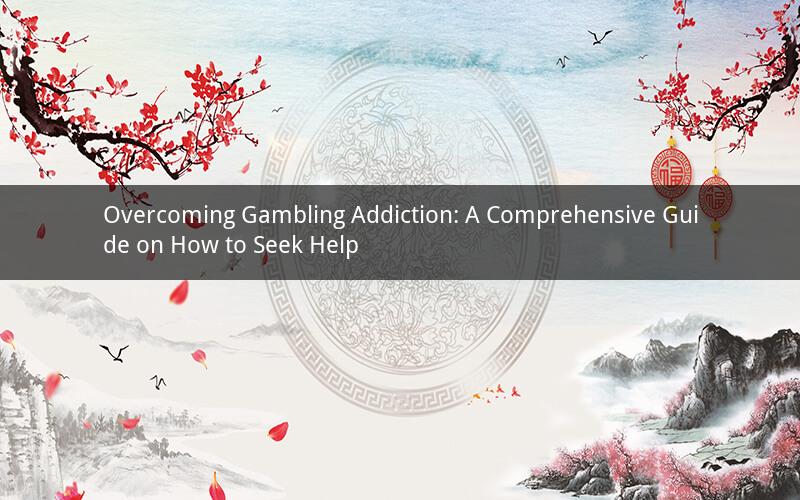
Gambling addiction is a serious issue that can have devastating consequences on individuals, families, and communities. Recognizing the signs of gambling addiction and seeking help are crucial steps towards recovery. This article provides a detailed guide on how to seek help for gambling addiction, including resources, support groups, and professional treatment options.
1. Recognizing the Signs of Gambling Addiction
The first step in seeking help for gambling addiction is to recognize the signs and symptoms. Here are some common indicators:
- Increased time spent gambling
- Feeling restless or irritable when unable to gamble
- Lying to hide gambling activities
- Borrowing money or selling possessions to fund gambling
- Ignoring responsibilities at home, work, or school
- Continuing to gamble despite negative consequences
2. Understanding the Impact of Gambling Addiction
Gambling addiction can have a profound impact on various aspects of life, including:
- Financial: Debts, loss of savings, and potential legal issues
- Emotional: Anxiety, depression, and feelings of shame or guilt
- Social: Strained relationships, loss of friends, and family support
- Physical: Sleep disturbances, weight gain or loss, and increased stress levels
3. Finding Support Groups
Support groups play a vital role in the recovery process by providing a safe space for individuals to share their experiences and gain support from others who have faced similar challenges. Here are some well-known support groups for gambling addiction:
- Gamblers Anonymous (GA): An international fellowship of individuals who share their experience, strength, and hope with each other to solve their common problem of gambling addiction.
- Gam-Anon: A fellowship of friends and family members of compulsive gamblers, providing mutual support and understanding.
4. Seeking Professional Treatment
Professional treatment is essential for overcoming gambling addiction. Here are some treatment options to consider:
- Therapy: Cognitive-behavioral therapy (CBT), dialectical behavior therapy (DBT), and other therapeutic approaches can help individuals develop healthy coping mechanisms and address underlying issues.
- Counseling: Individual or group counseling sessions can provide personalized support and guidance throughout the recovery process.
- Residential treatment programs: Inpatient programs offer a structured environment with round-the-clock support, allowing individuals to focus on their recovery without the distractions of everyday life.
5. Resources for Recovery
In addition to support groups and professional treatment, there are various resources available to help individuals overcome gambling addiction:
- National Council on Problem Gambling (NCPG): Provides resources, helplines, and referrals to help individuals find the support they need.
- Gamblers Anonymous (GA): Offers a 12-step program to help individuals recover from gambling addiction.
- National Center for Responsible Gaming (NCRG): Promotes responsible gaming and provides information on problem gambling and treatment options.
6. Frequently Asked Questions (FAQs)
Q1: Can I recover from gambling addiction on my own?
A1: While some individuals may find success through self-help methods, seeking professional treatment and joining support groups can significantly improve the chances of recovery.
Q2: How long does it take to recover from gambling addiction?
A2: The recovery process varies for each individual, but it often requires time, commitment, and ongoing support.
Q3: Are there any medications available to treat gambling addiction?
A3: Currently, there are no FDA-approved medications specifically for gambling addiction. However, certain medications may be prescribed to manage co-occurring mental health conditions, such as depression or anxiety.
Q4: Can I continue to gamble after seeking help?
A4: It is crucial to avoid gambling during the recovery process, as it can hinder progress and increase the risk of relapse.
Q5: How can I support a loved one with gambling addiction?
A5: Offer unconditional support, encourage them to seek professional help, and educate yourself on the addiction to better understand their struggles and provide appropriate assistance.
In conclusion, overcoming gambling addiction requires a comprehensive approach that includes recognizing the signs, seeking professional treatment, joining support groups, and utilizing available resources. By taking these steps, individuals can work towards a healthier, more fulfilling life free from the grasp of gambling addiction.